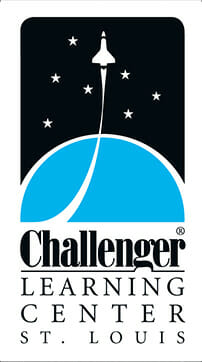Thirty years ago, on the date of the Challenger Shuttle’s final mission, President Ronald Reagan said, “The Challenger crew was pulling us into the future, and we’ll continue to follow them.” While we want to honor the Challenger crew that we lost on January 28, 1986, the entire Challenger Center network also wants to celebrate the success of collectively serving over 4.4 million students since its founding in April, 1986.
As part of that celebration, we would like to honor the innovators and explorers from a variety of STEM-related disciplines. We would like to use February, Black History Month, to particularly highlight some achievements of African Americans — past, present, and future.
Past

Early American Astronomer Benjamin Banneker, on the cover of his Almanac. Image Credit: Maryland Historical Society, Baltimore.
One of America’s earliest “movers and shakers” in astronomy was Benjamin Banneker (1731-1806). As a child he had excelled at a Quaker school in Baltimore that was open to free Blacks. As an adult, he studied astronomy and published a series of farmer’s almanacs that included the accurate prediction of a solar eclipse. Perhaps most importantly, he used the clout his genius earned him to advocate for others: In 1791, he sent a copy of his almanac to Thomas Jefferson, and included with it a letter challenging Jefferson’s beliefs about the inferiority of Blacks. More information on Benjamin Banneker, including his letter to Thomas Jefferson, can be found here.

Astronaut Ron McNair. Image Credit: NASA.
Of course, at the Challenger Learning Center, we are partial to the achievements of astronauts. Among these pioneers is Ron McNair, who flew successfully on mission STS 41-B before joining the Challenger’s final crew. As an African-American child in the South in the 1950s, McNair had to start overcoming barriers at an early age. Ron’s brother, Carl McNair, reflected, “You know, he came up during a time when there was Neal Armstrong and all of those guys. So how was a colored boy from South Carolina wearing glasses, never flew a plane, how was he going to become an astronaut? But Ron was one who didn’t accept societal norms as being his norm. I mean that was for other people.” Carl recounts more of his brother’s early story in this StoryCorps video:
Present

Computer engineer Chris Miller. Credit: Steve Menendez, St. Louis American.
When St. Louis local and Boeing engineer Chris Miller was on assignment in California, he began using his spare time to design a flight simulator. Years later, after becoming a father, he wrote a book titled, Daddy, How Do Planes Fly? to help share the wonders of flight with the next generation. He still wanted to do more so he continued to work on the flight simulator. Now he has a simulator in a trailer that he takes to elementary schools, with hopes of inspiring students to pursue STEM careers. More of Chris Miller’s story can be found here.
Future
We thought it was fitting to highlight one of our newest Flight Directors at the Challenger Learning Center, Ben Rahming. In addition to leading students on a mission to the Moon, Mars or a Comet here at the Challenger Learning Center, Ben is also a senior at WashU, majoring in Mechanical Engineering. When he graduates, he plans on pursuing a PhD with the hopes of becoming an engineering professor. We asked Ben a few questions about his studies and what led him to the path he is on now:

CLC St. Louis Flight Director and future engineer, Ben Rahming.
What got you interested in engineering?
When I was in grade school my parents gave me books to read about Garret Morgan, Benjamin Banneker, and Booker T Washington and other prominent historical figures. Learning about so many black scientists, inventors and engineers definitely sparked my interest in studying engineering. On top of that, My Dad is a math teacher and my older brother majored in math. The two of them taught me to love math.
How did you decide to focus your interest in engineering?
I first knew I wanted to be an engineer after studying Mechanics in AP Physics. Learning about the rules that govern the physical world fascinates me.
What advice would you give to younger kids who are still in grade school or middle school?
I would tell kids to follow their passions, to whatever field of study it leads them. I think if people honestly pursue their passion we would see more interest in math, science and engineering. Don’t give up on a subject because it’s too hard, you think you’re not good at it, had a bad teacher, etc. I hear a lot of people list these reasons when they talk about why they don’t like math or can’t do math. If studying history brings you joy, then go and become the best historian the world has ever seen. But don’t avoid a math intensive career path because math scares you.
What do you like to do in your free time?
I like to bike, read, write poetry, cook, and chill with my friends.
Starting Young
All of the people profiled here began their interest in science, technology, engineering or math early in life. If you want to inspire a child in your life toward a future of innovation and exploration, you can start by checking out our wide variety of programs.
